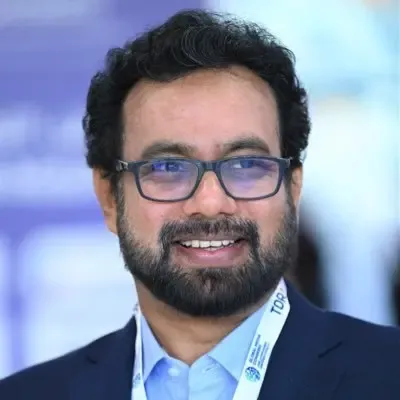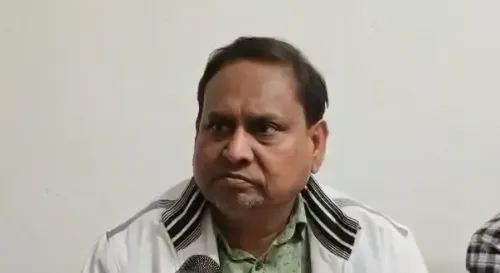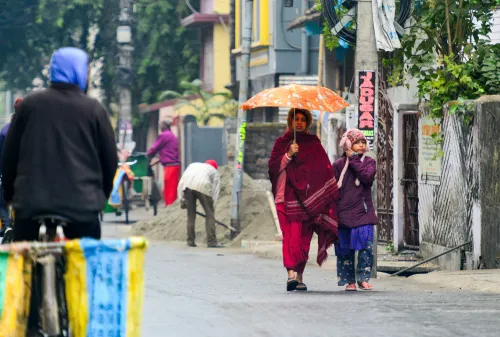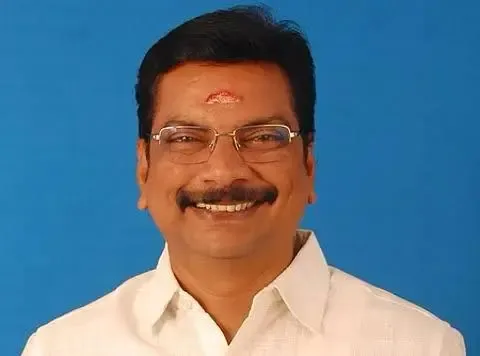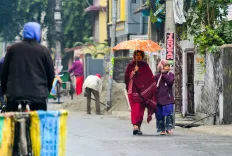Will Sardar Patel’s 150th Birth Anniversary Be a Historic Celebration in Gujarat with His Descendants?
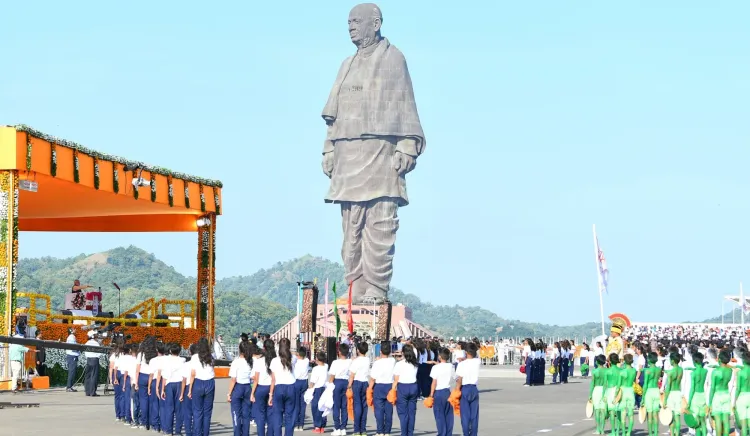
Synopsis
Key Takeaways
- Celebration of Sardar Patel's 150th birth anniversary.
- Presence of Prime Minister Modi adds significance.
- Sardar Patel's descendants attend the event.
- Statue of Unity symbolizes national unity.
- Historical legacy of the 'Iron Man' is honored.
Ahmedabad, Oct 28 (NationPress) The world's tallest statue, the Statue of Unity at Ekta Nagar, Kevadia in Narmada district of Gujarat, is poised to host a momentous occasion on October 31, commemorating the 150th birth anniversary of India's 'Iron Man', Sardar Vallabhbhai Patel. Prime Minister Narendra Modi is expected to attend this event, which will also feature the esteemed presence of Sardar Patel's descendants, adding a personal and historic touch to this national celebration of unity.
Notable attendees include Sardar Patel's grandson Gautam Dahyabhai Patel (80) and his wife Dr. Nandita Gautam Patel (79), along with their son Kedar Gautam Patel (47) and his wife Reena Patel (47). Their daughter Karina Kedar Patel (13), a great-great-granddaughter of Sardar Patel, will also be present.
Additionally, Sameer Indrakant Patel (68) and Rita S. Patel (66), extended family members, will join the gathering to honor their legacy.
The family gathering at the towering 182-meter statue symbolizes not just familial pride but also the lasting legacy of national unity and integrity envisioned by the 'Iron Man' of India. The presence of his descendants alongside the Prime Minister is anticipated to lend deep significance to the celebration — a convergence of history, emotion, and patriotism.
Ekta Nagar, which was once a tranquil riverside town, has transformed into a vibrant emblem of India's unity and progress. With the participation of Sardar Patel’s family, this year’s celebration is set to serve as a poignant reminder of the man whose vision and leadership laid the groundwork for a united India.
Born on October 31, 1875, in Nadiad in Gujarat, now part of Kheda district, Sardar Patel trained as a barrister in England before returning to India to practice law in Ahmedabad, where he quickly gained recognition for his sharp intellect and profound empathy for the common man.
Patel's leadership in Gujarat first gained prominence during the Kheda Satyagraha of 1918, where he led farmers in a protest against unjust tax collection during a famine.
His successful negotiations for relief from the British established him as a fearless and pragmatic leader. He further solidified his reputation during the Bardoli Satyagraha of 1928, a non-violent uprising by farmers against increased land revenue.


